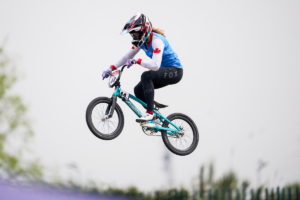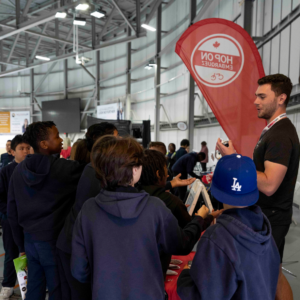COVID-19 PUBLIC HEALTH MEASURES CORE PRINCIPLES AND GUIDELINES
Personal Health
- All participants, coaches, trainers, riders, staff or anyone else who will be part of a cycling activity should be acutely aware of and must continuously monitor their own personal health
- Any person who has had a confirmed case of COVID-19, or who has come into close contact with a person who has a confirmed case, should isolate, not be part of a cycling activity for at least 14 days and seek appropriate medical attention
- Individuals should self-monitor for symptoms of COVID-19 on a daily basis and any person showing symptoms should self-isolate, refrain from cycling activities and coming into close contact with others
- Individuals with elevated risk for COVID-19 infection should take any necessary further precautions to protect themselves. Implement further measures to ensure an inclusive and safe environment. Information related to who may be at an elevated risk for infection is available here
- The Government of Canada COVID-19 Self-Assessment Tool is available here
Physical Distance
- Any activity must respect the social and physical distancing recommendations currently in effect by the federal as well as the relevant provincial or local government authority
- Always maintain 2 metres between all individuals before, during and after cycling activity
- Be conscious while riding to respect physical distance between riders as well as with other cyclists, joggers, pedestrians, etc.
- Modify your group activities to limit or eliminate contact between participants
- Limit your activities to small groups
Group Gathering Size
- Training group size, including all riders, coaches, parents, personnel, officials and required safety personnel must respect Provincial/Municipal group gathering size restrictions
- Training groups should be kept to a minimum practical size to reduce risk where possible
- If multiple training groups are established, they should be kept intact so that the same group of people are training together, and the circle of potential contact is not expanded unnecessarily
- Limit or eliminate all occasions for congregation of parents or athletes/participants in parking lots or any other gathering areas
Sanitation
- Limit the use of any communal or shared equipment and avoid the sharing of equipment between participants if possible
- Any surfaces which may be touched by multiple individuals should be sanitized before and after each training session
- Sanitation practices should follow the Canadian Government guidelines for cleaning hard surfaces
- Ask each participant to bring hand sanitizer and regularly remind them to wash their hands
Safety Contingencies
- Educate coaches to recognize the symptoms of COVID-19
- Ask participants under the age of 18 for a consent from a parent/guardian
- Inform yourself on the rules and recommendations issued by your Provincial Cycling Associations
- Coaches/leaders should be aware of and understand the processes outlined in the Emergency Preparedness and Response Plan
- Coaches and ride leaders should always have gloves, masks and hand sanitizer available to protect themselves should contact become necessary in the case of an emergency
- During this time, unnecessary risks should be avoided. Riders, participants and coaches should use common sense to avoid any situation which involves undue risk and the potential need for emergency personnel to respond, or that unnecessary personal contact becomes necessary
Use of Clubs & Sports Facilities
- Clubs should consult Provincial and Municipal health authorities to understand the local risks and implications of resuming cycling activities, in addition to the use of club facilities or any public areas to support outdoor activity
- Consider all potential restrictions or considerations for the place of an organized cycling activity such as park or facility closures or any other modified restrictions on public space usage
- Coaches and club leaders should ensure proper medical and sanitation equipment is available
- Cyclists should arrive for an cycling activity wearing their kit and equipment
- If using a facility, limit contact with surfaces and facility staff
PSO RETURN TO SPORT GUIDELINES
Bicycle Newfoundland and Labrador
Saskatchewan Cycling Association
FEDERAL, PROVINCIAL & TERRITORIAL – COVID-19 PUBLIC HEALTH LINKS
Provincial and Territorial








